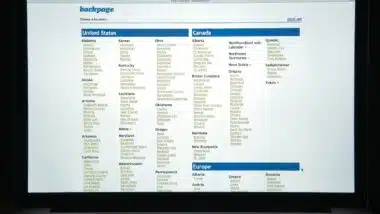 Extraneous resort fees, also known as “amenity fees” or “destination/facilities fees” are being investigated in a number of states in response to consumer complaints. So far, Nebraska and the District of Columbia have filed state lawsuits against major hotel chains, and bipartisan legislation that would outlaw such fees is currently making its way through Congress.
Extraneous resort fees, also known as “amenity fees” or “destination/facilities fees” are being investigated in a number of states in response to consumer complaints. So far, Nebraska and the District of Columbia have filed state lawsuits against major hotel chains, and bipartisan legislation that would outlaw such fees is currently making its way through Congress.
What is the Purpose of Hotel Resort Fees?
The activist organization KillResortFees.org describes these fees as the mandatory rate that is charged to a customer at check-in before they are given their room key. These are added to the advertised per-night room rate and are ostensibly charged for amenities such as Internet use, fitness rooms, swimming pools and more.
Unknown fees, according to the FTC, make it difficult for consumers to shop fairly. Because these are typically not published with the advertised room rate (guests usually do not discover hotel resort fees until they check-in), consumer advocates say they constitute deceptive pricing. Guests are forced to pay these fees even if they express no interest in using hotel amenities.
The practice is reportedly found at both ends of the price scale, from low-end, roadside motels to luxury resorts, and can add from between $25 and $160 to the nightly cost of a room. For example, KillResortFees reports that the Excalibur Resort in Las Vegas advertises its rate at $28 per night. However, once guests check-in, they are reportedly charged a $36.28 “resort fee.” After taxes, the actual rate is over $65 — twice the advertised price.
At the upper end of the fee scale, the Fisher Island Club and Resort in Miami Beach, Fla., advertises a nightly rate of $1,052 — but at check-in time, adds an additional $160.60 for amenities.
While hotel resort fees are found throughout the industry, most of the lodging and hospitality facilities that charge these extra fees are located in tourist destinations such as Las Vegas or coastal communities.
What’s Being Done About It
So far, at least three lawsuits have been filed against Wyndham, Hilton, and Marriott. Wyndham settled the claim against them for $6 million, but denied any wrongdoing. Those who stayed at a hotel owned and operated by the Wyndham Corporation, including the Days Inn, La Qunita, Hawthorn, and others between June 6, 2010, and Oct. 18, 2019, have until March 16, 2020, to file a claim. Note that in order to be eligible, claimants must have booked their stays directly with the hotel, not through a third-party.
The lawsuits against Marriott and Hilton filed by attorneys general in Nebraska and Washington D.C. are currently in progress, while investigations are taking place in 49 other states.
Aside from work being done by KillResortFees and other consumer groups, third-party booking agencies are also applying pressure to force greater transparency on hotel resort fees, and to prevent mislabeling. For example, this year Booking.com started charging hotels and resorts extra commissions on all extraneous fees charged on top of advertised room rates. Expedia Group is also attempting to penalize hotels that charge such fees by giving higher visibility to those that do not.
Consumers can take action by filing a complaint with their state’s Attorney General. In many cases, the hotel will be directed to refund hotel resort fees to the customer.
If you stayed at a one of the Marriott group hotels and were charged unexpected fees that raised your rate higher than the advertised price, you may qualify to participate in a FREE Marriott hotel fees class action lawsuit investigation.
This article is not legal advice. It is presented
for informational purposes only.
ATTORNEY ADVERTISING
Top Class Actions is a Proud Member of the American Bar Association
LEGAL INFORMATION IS NOT LEGAL ADVICE
Top Class Actions Legal Statement
©2008 – 2025 Top Class Actions® LLC
Various Trademarks held by their respective owners
This website is not intended for viewing or usage by European Union citizens.















4 thoughts onHotel Resort Fees Under Investigation by State AGs
It is not just taxes and resort fees. Refunding my reservations was refused after my accommodations were flooded and I lost power, no water, and the Internet. I booked a place in Puerto Rico through Priceline and gave them my flight number and arrival time. After I arrived at 1:00 AM and tried to contact the owner, there was no answer. I had to stay with the taxi driver’s family. The next day I checked into the apartment. There was a storm in Puerto Rico. As a common occurrence, most hotels and places that host guests have generators. Owner did not. There was no Internet, water, or electricity for three days. The apartment leaked and accumulated pools of water on the floor in the bedroom and kitchen. Consequently, I developed a cough and relocated to another hotel. I was charged over $1000 for the original two week stay and had to pay another $900 for the new hotel so it totaled over $2000 for both. I tried to get a refund for time I stayed in the first week. Priceline -Booking.com said I had to talk to the owner. Owner’s voice mail was full and she did not return my calls. Then I received a “cancellation fee for the remaining reservation. It was 90% of the original price. This was after I moved. Owner told Priceline/Booking.com that she was trying to get in touch with me to “fix” the problems. It was a lie. The problem was that there was no power. The only fix is a generator. Installing a generator does not require entry into my, or guest, rooms. The entire time I called, text, and emailed her she never responded. The cancellation fee was presented as a threat “Do you want to cancel now?” after stating I would be charged the full fee. I guess it’s okay for Priceline to give people slum landlords in accommodations that are flooding, have no water, electricity or Internet. Then charge full price for it.
My wife and I stayed at a Hotel in Hawaii in March of 2019 and had to pay the “Resort fee” of $50 a night. It did not look like a resort more like a third rate run down hotel. We left after three days and walked a short distance to a Marriott with our luggage in hand getting in a lot of healthy steps We did not need to pay a resort fee and it was a very nice accommodation.
I have never had to pay a resort fee at any Marriott that I have stayed.
Please add me
Please add me.